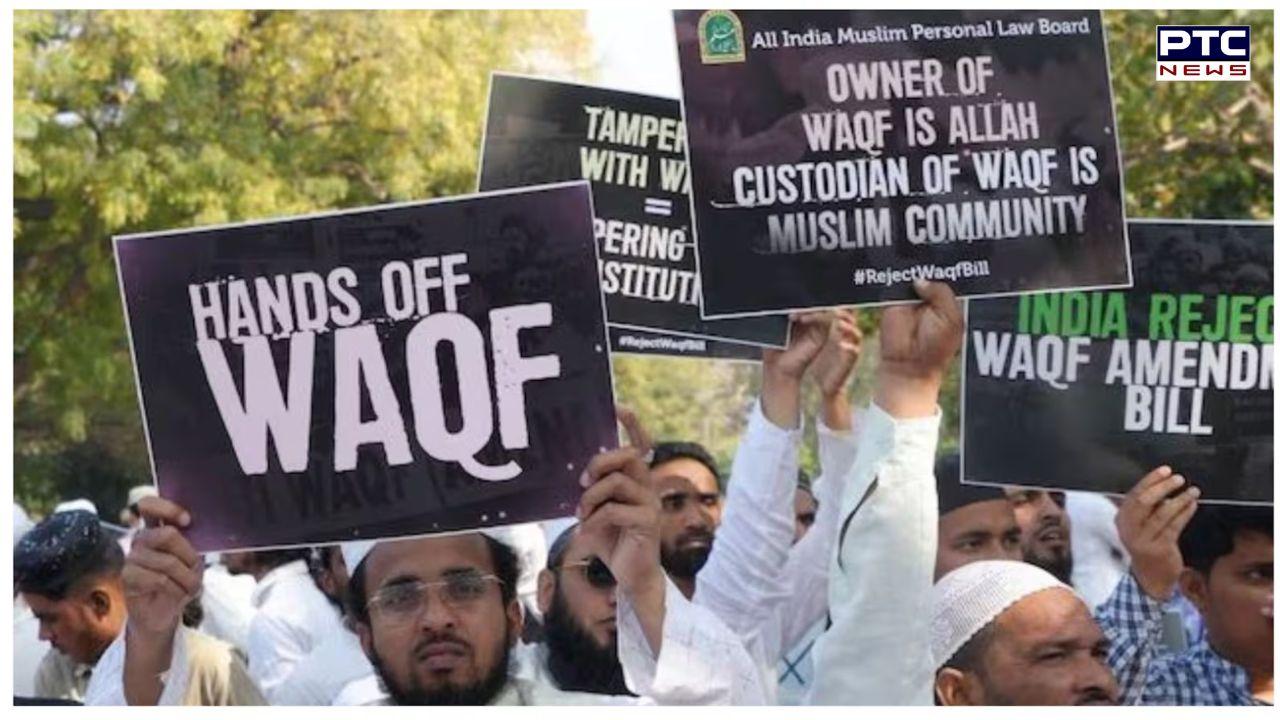

What is Waqf (Amendment) Bill, 2024: why is Opposition against the Bill? All you need to know
PTC Web Desk: The contentious Waqf (Amendment) Bill, 2024, has triggered strong reactions from political parties, prompting party leaders to issue whips to their Members of Parliament (MPs) to ensure their presence in the Lom Sabha on Wednesday. The Bill seeks to introduce major reforms to the Waqf Act, 1995.
What is the Waqf (Amendment) Bill, 2024?
The primary objective of the Waqf (Amendment) Bill, 2024 is to address challenges related to the regulation and management of Waqf properties in India. The Ministry of Minority Affairs states that the Bill aims to enhance the administration of Waqf properties by rectifying deficiencies in the existing Act and improving the efficiency of Waqf boards.
The proposed amendments include renaming the Waqf Act, 1995 to the Unified Waqf Management, Empowerment, Efficiency, and Development Act, 1995. Other key revisions focus on updating the definition of Waqf, streamlining the property registration process, and integrating technology for better record-keeping.
In Islamic law, Waqf refers to properties exclusively dedicated to religious or charitable purposes, and any other usage or sale is strictly prohibited. India possesses the world's largest Waqf holdings, with approximately 8.7 lakh Waqf properties covering 9.4 lakh acres, making the Waqf boards the third-largest landowners in the country after the Armed Forces and the Indian Railways.
Despite its extensive landholdings, the management of Waqf properties has been riddled with controversies. Major concerns surrounding the Waqf Boards in India include lack of diversity in board composition, irrevocability of Waqf properties, lack of judicial oversight, and misuse of provisions. The new amendment seeks to address these issues by introducing substantial reforms.
Key features of the Waqf (Amendment) Bill, 2024
The amendment Bill proposes several significant changes:
Renaming of the Waqf Act, 1995: The Bill seeks to rename the law as the Unified Waqf Management, Empowerment, Efficiency, and Development Act, 1995.
Inclusion of Muslim women & non-Muslims in Waqf Boards: The Bill introduces representation for Muslim women and non-Muslim members within the Waqf boards to ensure broader participation and transparency.
Government property exemption: Under the proposed law, any government property earlier identified as Waqf will no longer hold Waqf status.
Restrictions on Waqf board authority: The Bill removes the provision empowering Waqf Boards to determine whether a property qualifies as Waqf, shifting this responsibility elsewhere.
Enhanced govt oversight: The Bill empowers the Central Government to regulate the registration of Waqf properties, publish financial accounts, and oversee Waqf board proceedings.
Audit & financial scrutiny: The Central Government can now order audits of Waqf properties by the Comptroller and Auditor General (CAG) or a designated officer, ensuring financial transparency and accountability.
Why is the Opposition against the Bill?
The Waqf (Amendment) Bill, 2024 has sparked intense resistance from Opposition parties, who claim the Bill is both unconstitutional and divisive. Prominent Opposition leaders, including Congress’s Rahul Gandhi, Mallikarjun Kharge, NCP’s Supriya Sule, and AAP’s Sanjay Singh, held a meeting on Tuesday to devise a strategy to challenge the Bill in Parliament.
Congress leader Khaleequr Rahman expressed concerns that the Joint Parliamentary Committee (JPC) reviewing the bill had overlooked recommendations from Opposition members. He accused the government of attempting to “bulldoze” the legislation without proper discussion. “The entire exercise is being conducted in a very unconstitutional manner. The recommendations submitted by most JPC members from the Opposition have been ignored,” Rahman told ANI.
- With inputs from agencies
